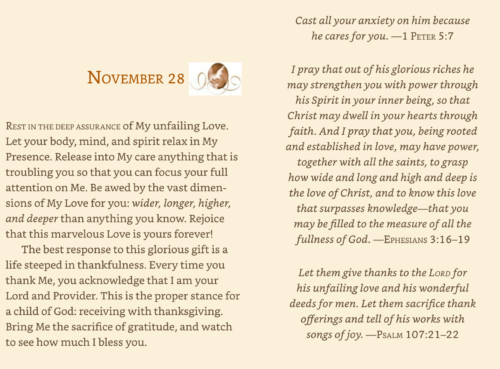Courage to Ask the Question
In a recent webcast, CAC faculty joined together to discuss the future of Christianity. Brian McLaren opened the conversation:
Our question that brings us together today is the question of the future of Christianity. This is a question that I have lived with really my whole adult life. I sensed it was part of my calling or vocation to live with and wrestle with this question.
And I think we should realize there are some people who would find it dangerous that we are even asking this question, because to raise the question of the future of Christianity suggests that the future might be different than the past or the present. And there are a lot of people who are very, very invested in making sure the future is exactly the same as the past or the present. And I think the question is also dangerous within each of us, depending on how we answer it. If we were to look at some positive trends and say, “Oh, the future of Christianity is bright! The future of Christianity is wonderful,” there’s a certain way that that kind of positive and even wishful thinking could then give us, inside of the privacy of our own minds, permission to say, “Everything’s going to be fine. I can return to my previously scheduled apathy and complacency.”
There’s another way of answering the question that says, “The future of Christianity is [bleak] and terrible and hopeless.” And we could succumb to a kind of despair or a cynicism that would allow us to say, “Nothing I can do about it. It will be what it will be. It’s out of my hands.” And that would allow us to return to our previously scheduled apathy and complacency.
But there’s another way of asking this question and engaging it with an open heart, an open imagination, an open mind. And that’s a way that leads to a sense of empowerment for us to be open to the ways that the future of Christianity could be influenced by what we know our story begins with: one person impacting twelve people who impacted several hundred more [and so on].
McLaren finds hope for Christianity’s future in viewing its past as an ever-evolving movement:
For centuries, Christianity has presented itself as an “organized religion”—a change-averse institution . . . that protects and promotes a timeless system of beliefs that were handed down fully formed in the past. Yet Christianity’s actual history is a story of change and adaptation. We Christians have repeatedly adapted our message, methods, and mission to the contours of our time. What might happen if we understand the core Christian ethos as creative, constructive, and forward-leaning—as an “organizing religion” that challenges all institutions (including its own) to learn, grow, and mature toward a deepening, enduring vision of reconciliation with God, self, neighbor, enemy, and creation? [1]
In the End, a New Beginning
Even if our traditional religious architecture crumbles—physically or conceptually—even then God can raise something beautiful from the rubble.
—Brian McLaren, The Great Spiritual Migration
In this talk on the church’s future, Richard Rohr encourages trust in the mystery of faith:
It is no accident that the liturgy has the creed at its core, a statement of faith that repeats: I believe, I believe, I believe. Regardless of what it is, we must find our real belief system. What are we passionate and enthusiastic about? What are we filled with God about? Being reactionary against what’s wrong might excite people, but it does not convert anybody, does not transform anybody, and does not draw the soul. We all know what’s wrong, we all know what should be changed, but more change, no matter how progressive, will not bring about soul transformation in and of itself. Our call to change is now obviously much deeper.
Our faith also offers us a foundational belief that life is a succession of dyings and risings. At the center of the Eucharist, we proclaim, “Christ has died, Christ is risen, and Christ will come again.” [1] That is the saving pattern! It is not a mystery of faith; it is the mystery of faith. It will never change. But Western people, trained in the philosophy of progress and problem-solving, don’t really believe that anymore. We much more believe that we can overcome the paschal mystery. That we can create a family, a parish, a church, an institution, a country that will not have to go through the dying of things.
It’s not true! It’s not true that everything’s getting better and better. That fallacy is being taken away from us. But we can return to the pattern of our faith and the pattern of reality: that things die and things resurrect and both are good teachers. Christ must be recognized and welcomed in both places—in the dying of things, and in the ecstasy and the loveliness of things.
The way down always teaches us. We need times where the soul is broken and we need some place we can go and weep and mourn. But we must have healthy people there who don’t let us sink into that negativity as a way of life. As people of the church, we are called to be agents of transformation who witness and accompany change with the wisdom of the soul.
Jesus never told us to put our trust in the larger institutions of culture or even the church. That doesn’t mean they are bad or that we should abandon them, but we must recognize that they are also subject to the paschal mystery, the dying and the rising of all things. And I think we must be honest that we’re at the downside of the curve. All the indices suggest that we are at the end of the dominance of the United States, Western civilization, and even of Christianity. The question for us becomes: What will we do about it?
